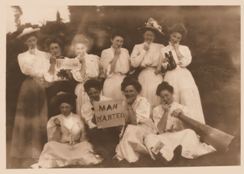Home »
Archive by category Biblical Studies (Page 4)
One of the problems with being a biblical theologian is the discomfort I suffer whenever someone’s question crosses lines between biblical and “Christian” categories. We have our way of talking. Biblical authors had their ways of talking. A simple question like, “Were the Hebrew prophets monotheists or henotheists?”[1]...
Continue reading
December 13, 2017 Andrew Sargent
101 Most Misunderstood Verses, Bible Backgrounds, Biblical Language Issues, Biblical Studies, Biblical Theology, Theology
No Comment
Words for Holiness in Greek, Hebrew & Aramaic appear over 1000x in Scripture. Issues of holiness were important to those in the biblical era. Almost every aspect of life was impacted by shared and contended ideas of The Holy. Yet, nowhere in Scripture is holiness clearly explained; it...
Continue reading
December 11, 2017 Andrew Sargent
101 Most Misunderstood Verses, Bible Backgrounds, Biblical Studies, Biblical Theology, Theology
How hard could it possibly be to find agreement on the meaning of a phrase as simple as biblical theology? In truth… harder than I’d like. Biblical theology is not, after all, merely theological ideas that are “biblical,” and the history of the phrase biblical theology is, unfortunately,...
Continue reading
December 8, 2017 Andrew Sargent
Biblical Theology, HAGALAH, Inductive Study Methods, Theology
No Comment
Read my blog long enough and you will find that I frequently bring up the frustration I feel as a right brained individual being often under the biblical studies thumb of the left brained. I read brilliant analyses of biblical era language issues by people whose final categories...
Continue reading
December 6, 2017 Andrew Sargent
Bible Backgrounds, Biblical Studies, Biblical Theology, Society
No Comment
In my previous blog, “What’s in a Name?” I started a discussion on the importance of paying attention to the meaning of names in the Bible. Sometimes what comes out of these names can be shocking. The truth is, people tend to take their own names pretty seriously,...
Continue reading
December 4, 2017 Andrew Sargent
101 Most Misunderstood Verses, Bible Backgrounds, Biblical Language Issues, Biblical Studies, Intertestamental History & Literature, Old Testament Studies
No Comment
One of the great things about learning Hebrew is the ability to share in the feel of the stories beyond raw content. Good writing uses language as more than just a mechanism for passing data; it communicates with a measure of art, and, at times, music, working rhyme,[1]...
Continue reading
December 1, 2017 Andrew Sargent
Biblical Language Issues, Biblical Studies, Biblical Theology, Inductive Study Methods, Theology
No Comment
I am not insensible to the rage many women feel over the modern misconception that the plight of women in the world is almost solely the result of a grand conspiracy by men to hold women down. Abuse of power, wherever it is found, against whomever it is...
Continue reading
November 29, 2017 Andrew Sargent
Bible Backgrounds, Biblical Theology, Intertestamental History & Literature, Society, Theology
No Comment
In our own western culture the connection between names and meaning is rather slight. I know this, in part, because I am one of those annoying, but well meaning, people who goes about attempting to engage others in witty conversation, only to discover 7 times out of 10...
Continue reading
August 14, 2017 Andrew Sargent
101 Most Misunderstood Verses, Bible Backgrounds, Biblical Language Issues, Biblical Studies, HAGALAH, Uncategorized
No Comment
At the risk of sounding like a petulant child… well, a petulant child that complains about the frequent misuse of ancient Hebrew in weekly church services…. Which now that I think about it isn’t really childish at all…. Okay, so… at the risk of sounding like a scholarly...
Continue reading
August 11, 2017 Andrew Sargent
101 Most Misunderstood Verses, Biblical Language Issues, Biblical Studies, New Testament Studies, Old Testament Studies
Doing biblical theology requires one to lay aside even precious biases in order to hear the message of Scripture speaking from foreign lands in foreign tongues out of foreign cultures. The Phenomenological method, so vital to biblical theology, demands that we listen to each text as believers wholly...
Continue reading
August 9, 2017 Andrew Sargent
Bible Backgrounds, Biblical Studies, Biblical Theology, HAGALAH, Inductive Study Methods, Theology
No Comment
One of the advantages, or disadvantages as the case may be, of being a biblical theologian, in which my phenomenological (i.e. believer’s) approach to the text within a historical grammatical and literary context through inductive method holds sway, is that I am excused within my heart from having to...
Continue reading
August 4, 2017 Andrew Sargent
Bible Backgrounds, Biblical Language Issues, Biblical Studies, Biblical Theology, HAGALAH, Old Testament Studies, Theology
No Comment
In considering the meaning of a simple word like concubine one finds an excellent example of the challenges that face modern attempts to represent many biblical terms. Sometimes we not only lack the words to properly translate, but we also lack the mental categories to emotionally understand. Technical...
Continue reading
August 2, 2017 Andrew Sargent
101 Most Misunderstood Verses, Bible Backgrounds, Biblical Language Issues, Biblical Studies, HAGALAH, Old Testament Studies
No Comment
In a busy world, I find that most prefer to give me advice rather than help. “You should be doing X,” (not ecstasy, just X as in “blah” or “fill in the blank”). “You need to [read this book] [use this product] [learn this program] [start doing this...
Continue reading
July 28, 2017 Andrew Sargent
Biblical Language Issues, Biblical Studies
No Comment
To those who mainly regard the Bible as a source for answering their every question about God and the world, biblical theologians can be a real pill, and biblical theology can feel more than a little threatening… I get that. We are, however, worth getting to know. Thus,...
Continue reading
July 26, 2017 Andrew Sargent
Bible Backgrounds, Biblical Language Issues, Biblical Studies, Biblical Theology, HAGALAH, Inductive Study Methods, Old Testament Studies, Theology
I’d like to draw your attention to artifact communication—the use of things to affect the understanding of another. Things have shared meaning within a community. Like a band of gold worn specifically on the “ring finger” of the left hand. Like a read dot in the middle of...
Continue reading
July 24, 2017 Andrew Sargent
Bible Backgrounds, Biblical Studies, Communication
No Comment
Mat 18:19 Again I say unto you, That if two of you shall agree on earth as touching any thing that they shall ask, it shall be done for them of my Father which is in heaven. 20 “For where two or three are gathered together in my...
Continue reading
July 19, 2017 Andrew Sargent
101 Most Misunderstood Verses, Biblical Studies, Biblical Theology, New Testament Studies
No Comment
Communication at its most basic is the use of symbols to affect the understanding of another. The symbols at a communicator’s disposal are both verbal and non-verbal. Verbal tools are spoken & heard symbols that represent ideas. Non-verbal tools are unspoken symbols that represent ideas. Phonology—uses words (individual...
Continue reading
July 14, 2017 Andrew Sargent
Biblical Language Issues, Biblical Studies, Communication, HAGALAH
No Comment
If you still aren’t convinced that learning biblical languages is worth the effort and time it will take to learn them (which is not as much as you imagine), I’ll list an additional 3 ways that learning biblical languages can enhance your ministry. Remember! when I use the...
Continue reading
July 12, 2017 Andrew Sargent
Biblical Language Issues, Biblical Studies
No Comment
Well, now I’ve done it. I’ve brought up right brained and left brained in a public setting. I’m sure I’ll hear about it from critics. So, let me ward off some of the flack by confessing from the get-go: [Disclaimer: I am not a medical doctor, nor a...
Continue reading
July 10, 2017 Andrew Sargent
Biblical Language Issues, Biblical Studies, Biblical Theology, Old Testament Studies, Theology
No Comment
I have a vision for the rest of my life. You may not care for it, but it sure means a lot to me. I want a cabin in the woods, on a lake, miles from the nearest neighbor. I want an office looking out over the water...
Continue reading
July 7, 2017 Andrew Sargent
Biblical Studies, Old Testament Studies, Society
No Comment
















